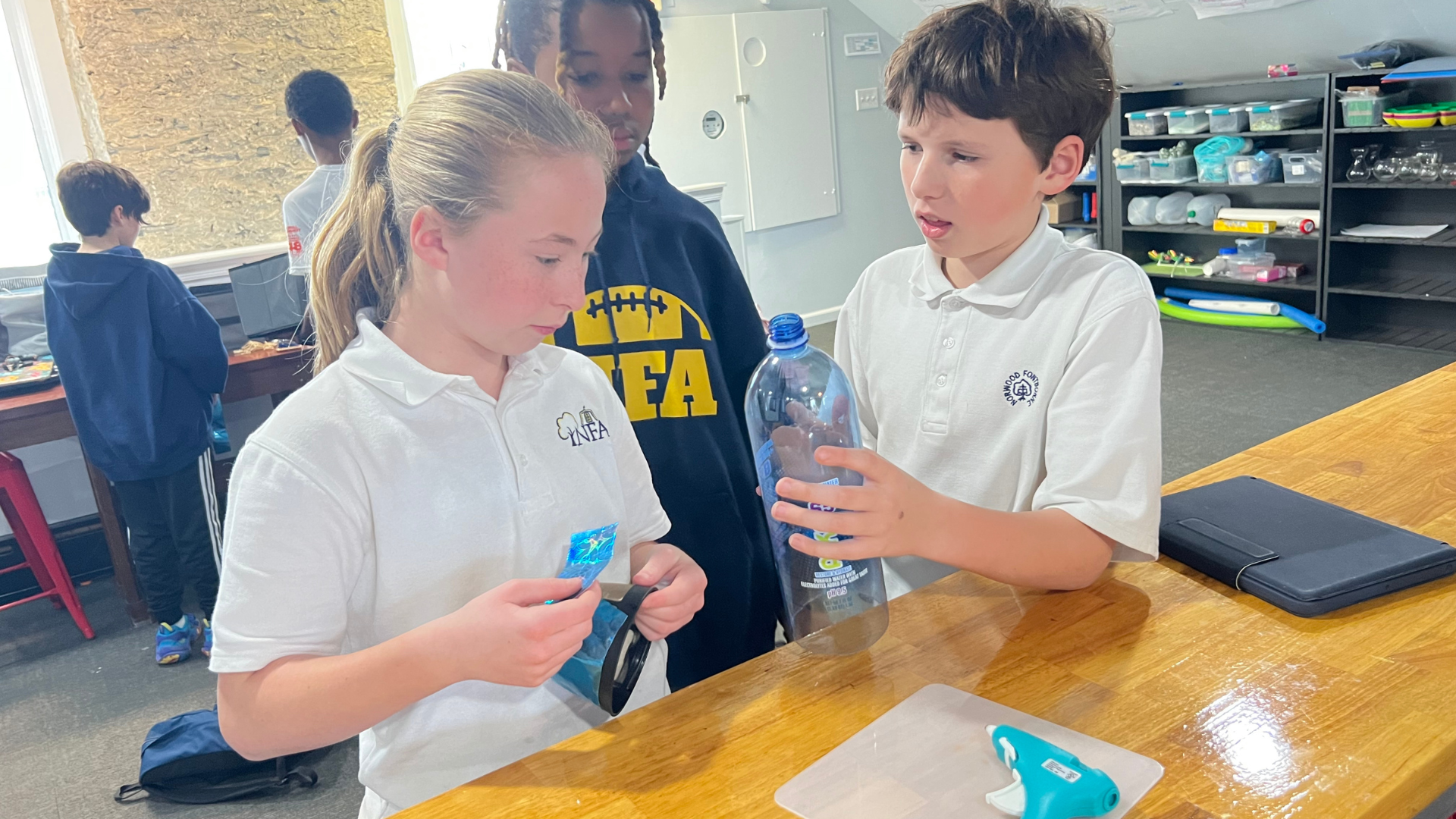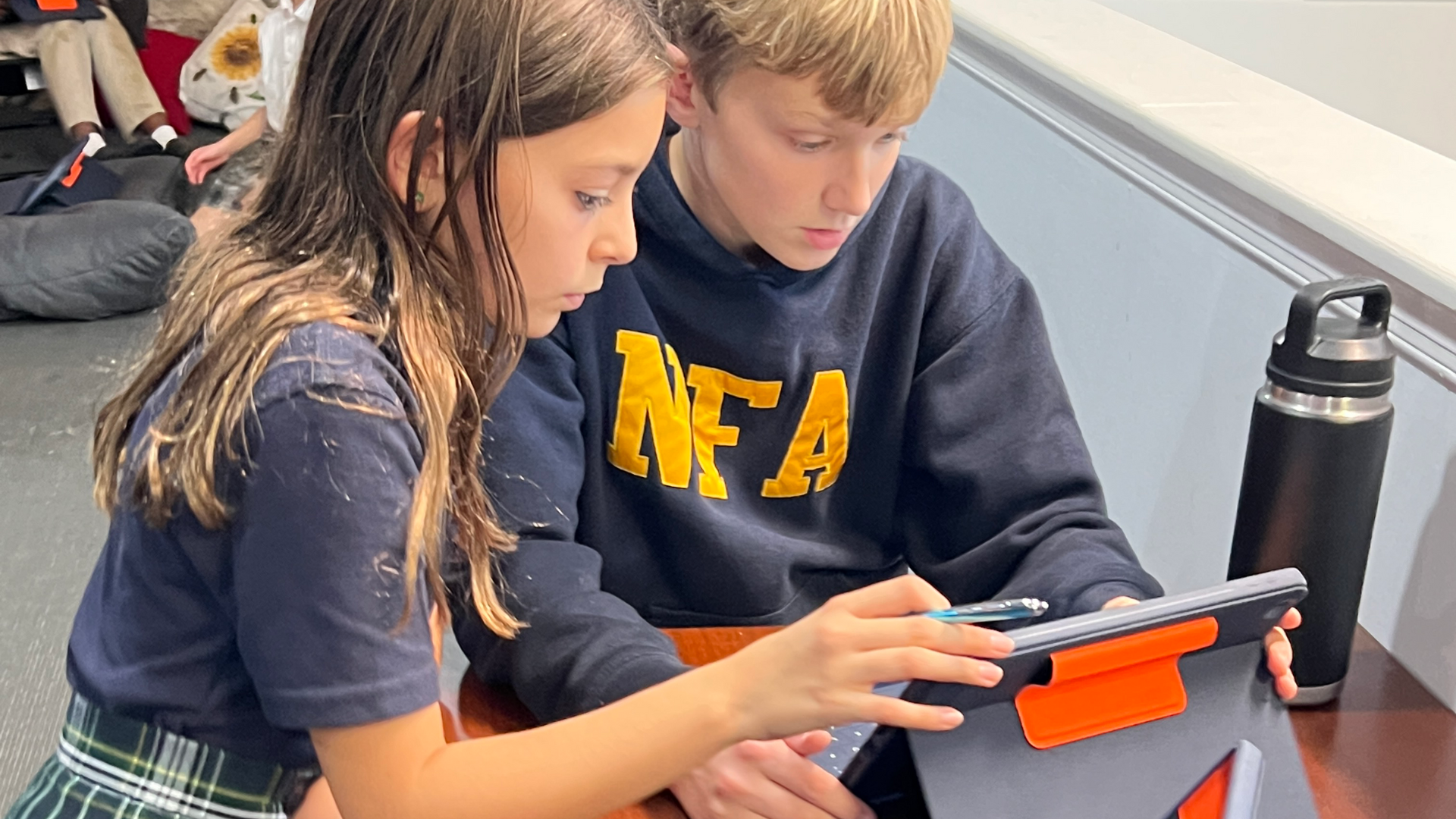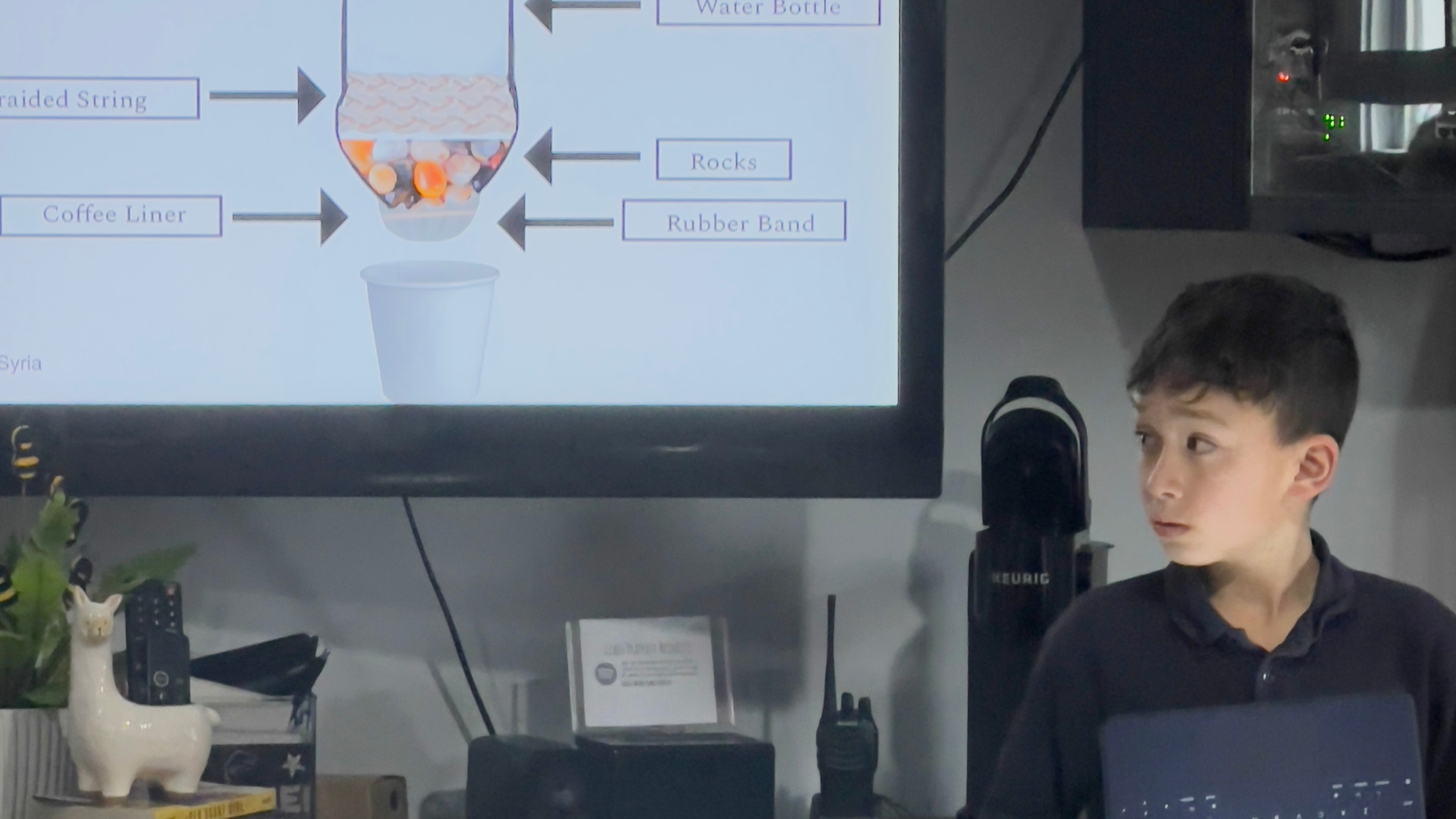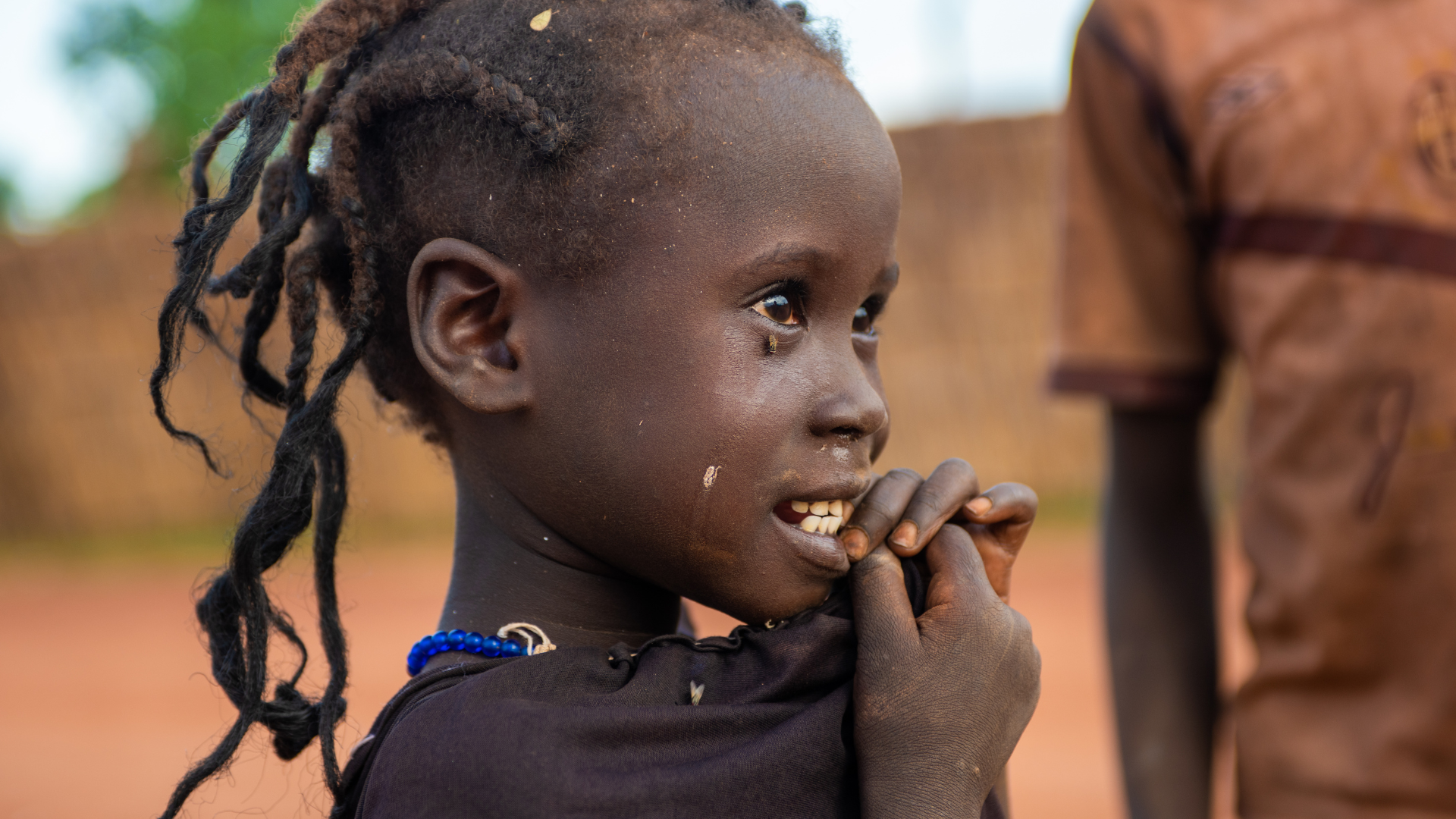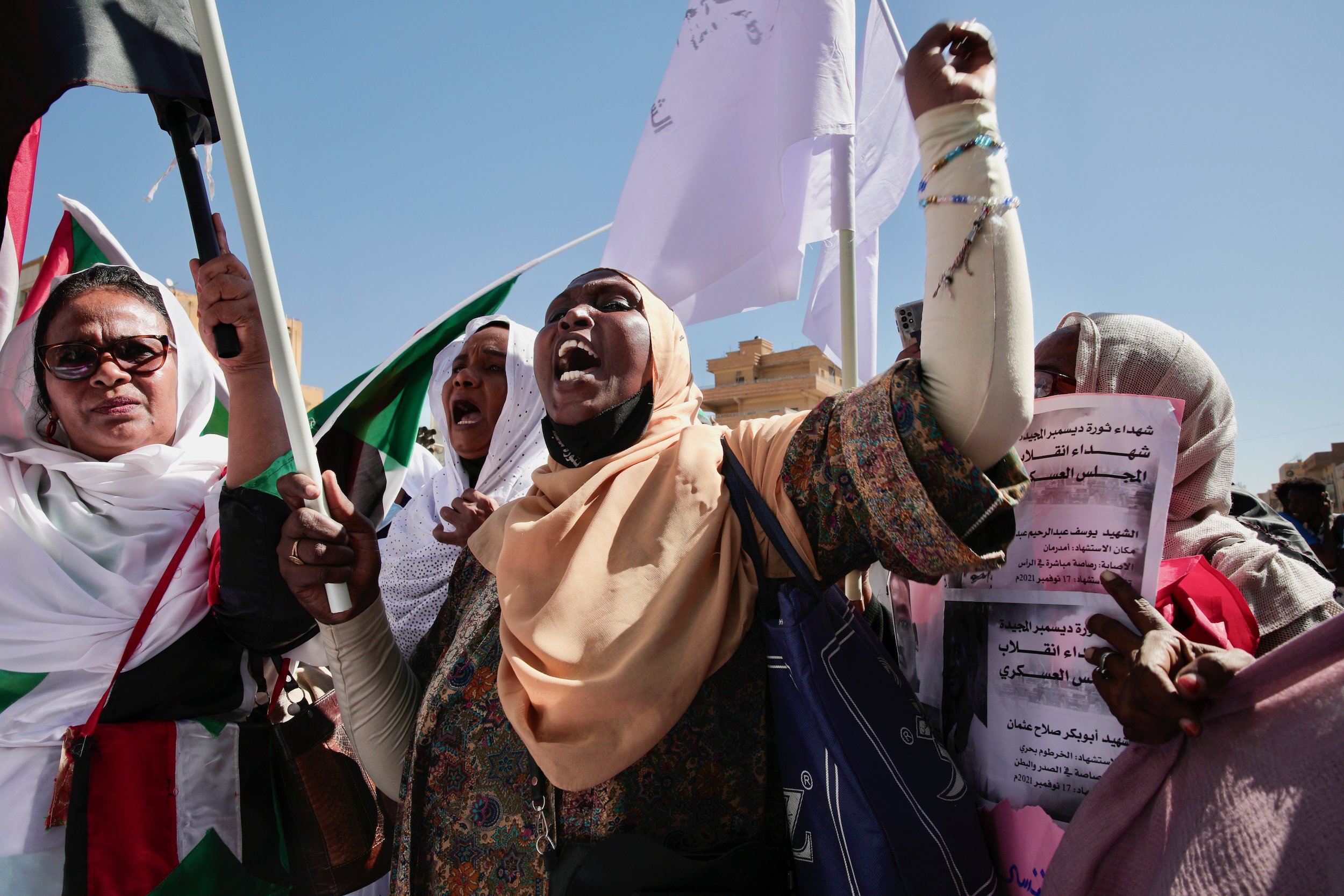News & Updates
Check out the latest from Sudan and our movement
Sudan Crisis: Update & How To Help
One week into the civil war in Sudan and there is no end in sight.
Friends and supporters,
It’s been nearly one week since the the Sudan Armed Forces —the country’s official military— and the paramilitary Rapid Support Forces began waging war on each other.
Our top priority continues to be ensuring the safety of our Sudanese partners and contacts. I can confirm that our partners and direct contacts are all accounted for, but some of them have lost dear friends and family members to the fighting. Some are in safe spaces, others are not. We grieve with them, and we share their outrage.
We have an update on the situation for you below; but, before you read it, can you make a quick donation to our Sudanese partners? Program costs are rising due to the war and we are preparing to meet emergency needs when they arise. A generous private donor is matching all donations, up to $15,000 total. Give now to double your impact.
Other Ways to Give: Mail A Check | Donate Crypto | Donate Stock
We are a 501(c)(3) nonprofit organization. Your gift is tax-deductible within the rules of US law.
An Update On The Situation In Sudan
This update is meant to provide you a general overview of the current political and security environment in Sudan. This is not an exhaustive update and the situation is changing by the hour. For more frequent updates, please follow us on Instagram, Twitter, and Facebook.
Since the initial outbreak of fighting between army and paramilitary forces in Khartoum on April 15, violence has spiraled out of control and into other parts of Sudan. The Sudan Armed Forces (SAF) —the country’s official military— currently has the upper-hand in most parts of the country. With the official death estimate already over 400 and the numbers of wounded at 4,000 and climbing fast, this crisis is likely far from over. Considering the brutality of some of the fighting and war crimes we are seeing, these numbers are certainly a vast undercount.
In the long-oppressed western Darfur region, SAF is largely in control of all state capitals, although some fighting continues north of Nyala, the capital of South Darfur. It appears that the paramilitary Rapid Support Forces (RSF) expected army units would put up little resistance in El Fasher and Nyala. That proved to be a severe miscalculation, with eyewitnesses reporting fierce fighting before RSF units were mostly driven out of both cities. Widespread looting and war crimes have been committed by both sides.
Elsewhere in Sudan, SAF has retaken the Meroe air base north of Khartoum, a major resupply route used by RSF forces. Port Sudan in the east is also under SAF control. El Obeid in Kordofan has seen rolling battles between SAF/police and RSF units. In South Kordofan —home to the Nuba Mountains, where the bulk of our programs are— SAF is in control of all major towns in regime-held areas. The situation there is largely quiet, but tensions are high. Fighting has also been reported in countless small and medium-sized towns across much of Sudan where the army and paramilitaries both have a presence.
The most brutal fighting remains in Khartoum. Over the last few days, both sides have poured thousands of reinforcements, artillery, and weapons and ammunition into the capital. The heaviest fighting is in central Khartoum and neighborhoods in nearby Omdurman. Shelling and heavy gunfire continues around what is left of the army headquarters, international airport, and presidential palace. There are widespread reports of RSF paramilitaries using hit-and-run attacks out of residential areas, with the army launching airstrikes and shells indiscriminately into neighborhoods in response.
Large parts of Khartoum are without power and the city is running dangerously low on fuel, water, and food. The healthcare system is at high-risk of a total collapse in the next few days, with several hospitals having been attacked and all running low on supplies and staff. Deaths and injuries will likely skyrocket soon as fighting continues and what is left of basic social services deteriorate.
Looking beyond Sudan’s borders, ceasefire attempts by the international community have failed. Several diplomatic convoys in Khartoum have been fired on and fallen back to their embassies. Most all international aid operations in the country have been halted. Multiple countries, including the United States, are preparing for military evacuations of diplomatic personnel and whatever citizens sheltering in place they can reach. These realities are best understood as grim warnings that Sudan’s generals have no interest in negotiating an end to this madness.
To make matters worse, other countries are now entering the tempest. There are reports of Egypt launching airstrikes against RSF bases and supply lines as far as they can reach into Sudan. There are unconfirmed reports that the United Arab Emirates is attempting to resupply the RSF through Libya. And the Russian mercenary group Wagner, which has a sizable presence in Sudan, is reported to be furnishing the RSF with surface-to-air missiles. Efforts like these to prop up both sides in this conflict will likely only stretch out this crisis even further, even if this eventually devolves into ongoing, lower-level conflict in more rural and periphery regions of the country.
Predicting when and how this ends is a futile effort; however, considering the nature of the crisis and posture of SAF and RSF commanders, it seems apparent that the current goal of the army is to eradicate the RSF paramilitary force once and for all.
We anticipate that al-Burhan and his army generals will continue pressing their advantage as RSF units retreat or collapse across the country. And it seems like Hemeti and his paramilitary commanders will continue to try to decapitate army leadership in Khartoum as, right now at least, this appears to be the RSF’s only viable path to dominance. As always, the Sudanese people stand to lose the most. Caught in the crossfire and directly targeted by the very security forces tasked with keeping them safe, millions of ordinary Sudanese are living through one of the worst nightmares in Sudan’s recent history.
While the rule of law has been largely absent from Sudan for decades, the oppression of regime rule provided minimal stability in the power centers that the generals relied upon to survive. Even that is now gone. The regime is cannibalizing itself; its generals wholly committed to each other’s destruction in the name of individual self-preservation. One is forced again to see the truth for what it is: if this is not total governmental ruin, then there are no rules of governance.
At the end of this post you can find additional public reporting that provides more background on Sudan’s generals and the roots of this new crisis. Before that though, we encourage you to take action in this moment of severe crisis.
Get Involved
Operation Broken Silence has been working next to our Sudanese partners on the ground for over a decade. Our mission has always been focused on the long run, which is why empowering local solutions will remain our top priority, even during this crisis.
Supporting local teachers like Chana makes all the difference for students who have survived war and want to build a better future for their country. The cost of life-changing programs like these is going up due to the war, and we anticipate that we will soon be called to fund emergency needs. We can’t let this crisis stop our Sudanese partners from doing what they do best: lifting up their people.
The fastest way to help them is to make a quick one-time donation online, or setup a small monthly gift to help provide them the consistent support they need. A generous private donor is matching all donations, up to $15,000 total. Give now to double your impact.
OTHER WAYS TO HELP
Start a fundraising page and ask friends and family to give
Make a check payable to Operation Broken Silence and mail it to P.O. Box 770900 Memphis, TN 38177-0900
It’s been a long week for our friends in Sudan. There’s still a lot of uncertainty ahead, too. What we know is that our Sudanese partners need our help. Let’s each play our small part in giving them the best chance for real, lasting change.
Onward,
Mark C. Hackett
Executive Director
Additional Reporting You May Find Helpful
Sudan's nightmare scenario has arrived
The Sudan Armed Forces and the paramilitary Rapid Support Forces are now waging war on each other.
Friends and supporters,
The crisis we have feared for months began in earnest over the weekend. The Sudan Armed Forces —the country’s official military— and the powerful paramilitary Rapid Support Forces are now waging war on each other.
As of the time this is being posted, millions of people who call Khartoum home are watching in terror as fighter jets scream through the skies. Intense fighting involving armored vehicles, tanks, truck-mounted machine guns, and artillery has consumed areas around the Presidential Palace and other government installations. Smoke was seen billowing from the international airport, where civilian airliners were bombed as soldiers battled for control. Artillery and heavy gunfire pummeled random neighborhoods, schools, health facilities, and more.
And the military headquarters —a building long viewed as a symbol for all that has gone wrong in Sudan— has been decimated by the brutal security forces born in its halls.
The violence is now quickly spreading to other parts of Sudan, so quickly that we still do not have a full picture of what is happening. Nyala in Darfur has been described by one of our contacts there as “Hell coming to Earth.” Hospitals in El Fasher are buckling as large numbers of wounded seek care. Gunfire was heard throughout Port Sudan over the weekend. El Obied. Menroe. El Geneina. Zalingei. We could spend the rest of this update naming the cities and communities where fighting is underway. This cancerous war is spreading into all corners of Sudan.
Nearly 200 people have already been reported killed, with over 1,800 more injured. This is almost certainly an extreme undercount considering the severity of the violence and the inability of people to move freely about and see how much damage is truly being done.
As for the generals who started this war? They’re hurling childish insults at each other and refusing to stand down, playing make-believe and telling themselves they are saviors of a country whose people see them as dictators. Looking at the transgressive malevolence of Sudan’s generals, one is forced again to see the truth for what it is: if this is not total governmental ruin, then there are no rules of governance.
Smoke is seen rising from Khartoum's skyline on April 16, 2023. The Sudanese military and a powerful paramilitary group battled for control of the chaos-stricken nation for a second day Sunday, signaling they were unwilling to end hostilities despite mounting diplomatic pressure to cease fire. (AP Photo/Marwan Ali)
How this impacts our mission
Our sole priority over the weekend was ensuring the safety of our Sudanese partners and contacts. I can confirm that our partners and direct contacts are all accounted for, but some of them have lost dear friends and family members to the fighting. Some are in safe spaces, others are not. We grieve with them, and we share their outrage.
In my 16 years with the Sudanese people, I have never seen as much raw anger as I am seeing now. Calling this war senseless would be a catastrophic understatement. One of our partners summed this reality up to me well yesterday, saying “The generals are fighting to overthrow themselves. This is the dumbest thing yet I have seen them do.”
How many more must die at the hands of narcissistic generals who only care about their own power? How many more lives must be destroyed before these men realize they are unfit to lead? How much more innocent blood must be shed for the Sudanese people to be free of this insanity?
As most of you know, the bulk of our Sudanese partners operate in and near the southern Nuba Mountains region of the country. For now, the situation there remains quiet. But we are already seeing severe challenges in programing because of this absurd conflict. Critical parts needed to complete the clean water project we recently fundraised for are now indefinitely delayed. Some program costs will go up soon as supply lines are closed off by the chaos that comes with war. And the hum of anxiety in our Sudanese partners that eased last year has returned.
How much longer? When does this end? How much more are we supposed to bear?
The generals responsible for this mass violence don’t have the answers to these questions. They certainly have no vision for Sudan, only a vision for themselves that has already led to the senseless deaths of countless people they never met.
Our Sudanese partners don’t know the answers to these questions either, but their vision for a healthy and whole Sudan remains resolute. This is the way. And they once again need our help in a time of severe crisis.
Get Involved
Operation Broken Silence has been working next to our Sudanese partners on the ground for over a decade. Our mission has always been focused on the long run, which is why empowering local solutions will remain our top priority, even during this crisis.
Supporting local teachers like Chana makes all the difference for students who have survived war and want to build a better future for their country. The cost of life-changing programs like these is about to go up due to the war. We can’t let that stop our Sudanese partners from doing what they do best: lifting up their people.
The fastest way to help them is to make a quick one-time donation online, or setup a small monthly gift to help provide them the consistent support they need. A generous private donor is matching all donations, up to $15,000 total. Give now to double your impact.
OTHER WAYS TO HELP
Start a fundraising page and ask friends and family to give
Make a check payable to Operation Broken Silence and mail it to P.O. Box 770900 Memphis, TN 38177-0900
This has been a difficult few days of major setbacks for our friends in Sudan. We don’t know what the coming days and weeks look like. All we know is that our Sudanese partners need our help. Let’s each play our small part in helping to give them the best chance for real, lasting change.
Onward,
Mark C. Hackett
Executive Director
Movement Spotlight: Norwood - Fontbonne Academy Students
How one school used a multifaceted project about clean water to help oppressed communities in Sudan.
Operation Broken Silence may be a small organization; but, with the support of our incredible movement found across the United States and around the world, we’re able to help our Sudanese partners make progress in their communities in some really big ways.
We want to share one of these stories from our movement with you today! Meet Megan Stotz, an educator at Norwood - Fontbonne Academy in Philadelphia, PA.
Some of Megan’s students recently worked on a media project about clean water access. She heard about the clean water project we were fundraising for in the Nuba Mountains of Sudan and reached out to us about getting involved. We introduced some real-world experience from the nonprofit-side of things to her students and they eagerly jumped into their own project and fundraising for ours! She says:
“The most interesting thing my students and I learned was the resiliency of the Sudanese people. After facing decades of turmoil and despair, the Sudanese people have not given up hope for a better future. Their hope was contagious and inspired my students to want to learn more, help in an authentic way, and be the next generation of global change agents.
What stood out the most to my sixth grade students was how they deeply comprehended the meaning of ‘Water is Life.’ My students connected that clean water provides access to improved health, safety, and education. They could identify the ripple effects in people's lives, especially children their age, when they do not have access to safe and clean water. One sixth grade student named Jake Donovan said, ‘This is more than a health crisis, it's a life crisis.’
This salient theme tied itself to the engineering prototype designs my students were creating. Their designs went from a simple water filter with no significant purpose, to a prototype of a water fountain using local vegetation as a filter that would be located near classrooms so students and teachers would have easy access to clean water. Another group designed and built a portable water filter for families to use when they are traveling far from their local village for either work opportunities or access to food. Without the awareness of the need for clean water my students wouldn’t have fully grasped the effect their water filtration would have on people.”
Together, the students raised $1,375 for the clean water project we are sponsoring in the Nuba Mountains of Sudan! This helped us close the remaining fundraising gap for the project. Here’s what Megan had to say about how fundraising benefited her students:
“There were so many aspects of the project that we loved! First and foremost, my students were able to see in real time how many hands make light work. From people donating $1 to $100, everyone's contribution made a difference. Each time we jumped over a goal my students would scream and high five each other with excitement. Additionally, my students were able to follow the process of how an engineering solution gets into the real world. From identifying a need, building a solution with a sustainable design, then finding monetary resources to get the plan in action was an invaluable lesson.
Hands down the best thing I did for my students this year was to get involved with Operation Broken Silence. The level of empathy my students felt and have maintained over the course of our class project was largely in part with working with Operation Broken Silence.
From their touching media pieces, to purposeful and sustainable solutions for the Sudanese people, my students knew the work they were doing was helping others. Being able to see the efforts of their plans be put into action was something I couldn’t have done with a traditional lesson plan. My students were also able to identify all of the moving parts within an NGO. The realization of the importance of logos, websites, marketing, and fundraising, heavily influenced the work they put into their NGO and prototype design. These real world connections will have a lasting impact on not only their learning, but their life.”
Thank you to the students, Megan and her colleagues, and the families of Norwood - Fontbonne Academy for including our mission and Sudanese partners in your community. Some of our friends in Sudan will soon benefit from your compassion, and we are always encouraged when we see students helping others.
Get Involved
Operation Broken Silence has been working next to our Sudanese partners on the ground for over a decade. Our mission has always been focused on the long run, which is why empowering local solutions in the oppressed Nuba Mountains region is our top priority.
Supporting local teachers like Chana makes all the difference for students in Yida Refugee Camp. The fastest way to empower them is to make a quick one-time donation online, or setup a small monthly gift to help provide them the consistent support they need.
OTHER WAYS TO HELP
Start a fundraising page and ask friends and family to give!
Make a check payable to Operation Broken Silence and mail it to P.O. Box 770900 Memphis, TN 38177-0900.
Operation Broken Silence is a 501(c)3 tax-exempt organization and your donation is tax-deductible within the guidelines of U.S. law. To claim a donation as a deduction on your U.S. taxes, please keep your email donation receipt as your official record. We'll send it to you upon successful completion of your donation.
Watch: ICC Prosecutor Karim Khan briefs the UNSC on the Situation in Darfur, Sudan
Yesterday, the prosecutor of the International Criminal Court (ICC) presented an update to the United Nations Security Council.
Yesterday, the Prosecutor of the International Criminal Court (ICC) presented an update to the United Nations Security Council (UNSC) concerning the situation in Darfur, Sudan. You can watch Prosecutor Khan’s moving testimony above and find a brief summary below.
Trial of Ali Kushayb
In April 2007, the ICC issued an arrest warrant against Ali Muhammad Ali Abd–Al-Rahman, aka Ali Kushayb. The Prosecutor’s Office argues that he was a key commander and organizer of the pro-regime Popular Defense Forces and Janjaweed militias that launched devastating attacks on Darfuri towns and villages between 2003-2004.
Evidence suggests that Ali Kushayb personally participated in some of the attacks against civilians in the towns of Kodoom, Bindist, Mukjar, and Arawala between August 2003 and March 2004, where the murder, rape, and torture of civilians were committed. The prominent regime militia leader was captured in the Central African Republic in 2020, after fleeing Sudanese government forces who had turned against him.
ICC Prosecutor Karim Khan reported that his office is preparing to wrap up the case against Kushayb. This is a landmark trial, the first ever stemming from a Security Council referral and the first in relation to the situation in Darfur before the Court.
Regime No Longer Cooperating With The Court
Prosecutor Khan informed the Security Council that the Sudanese government has largely stopped cooperating with regards to the Court's other cases. ICC staff entering Sudan face growing administrative hurdles that are preventing them from pursuing their critical work. The Court still has not been allowed to set up an investigative office in country. “Over the last six months, unfortunately not one request for assistance has been executed by the government of Sudan,” he said.
Sudanese war criminals indicted by the Court also remain “at large,” even though their locations are believed to be known. Overthrown dictator Omar al-Bashir, also indicted by the Court, is in Sudanese government custody. Prosecutor Khan stressed that “a change in posture is needed” in Sudan, saying “And if we do not see a change of approach, I may have no option in the next report but maybe to commend certain other action by Member States in the next period.”
Background
The crisis in Darfur was referred to the ICC by the UNSC in March 2005 after the Security Council determined that the situation in Sudan constituted a threat to international peace and security. The ICC investigations regarding Darfur focus on allegations of genocide, war crimes, and crimes against humanity committed in Darfur, Sudan since July 2002.
Since then, the Court has produced several cases with suspects ranging from Sudanese government officials, militia/janjaweed leaders, and leaders of armed resistance groups.
Get Involved
Operation Broken Silence has been working next to our Sudanese partners on the ground for over a decade. Our mission has always been focused on the long run, which is why empowering local solutions in the oppressed Nuba Mountains region is our top priority.
When you give, you are supporting local teachers just like Chana, who are serving over 900 students a year in Yida Refugee Camp.
OTHER WAYS TO HELP
Start a fundraising page and ask friends and family to give!
Make checks payable to Operation Broken Silence and mail to P.O. Box 770900 Memphis, TN 38177-0900
Farewell 2022
An end of year message from our Executive Director.
Supporters and friends,
Where did 2022 go? Our mission went by faster this year than any I can remember.
As we prepare to enter a new year, I want to pass along the sincere gratitude of our Sudanese partners. Here are a few highlights that they asked me to share with you:
Incredible progress is still being achieved at the Endure Primary and Renewal Secondary Schools, despite many families departing Yida Refugee Camp for their villages in the Nuba Mountains. Attendance at both schools is holding steady at roughly 900 students every day, classroom repairs were recently completed, and roughly 1,400 students at other schools in Yida received national exam preparation support thanks to you.
With your help, we continue to make progress on the clean water project one of our Sudanese partners plans to complete in 2023. Final preparations are being made on the ground now as what should be the final donations roll in. When complete, roughly 7,000 people across five villages in the Nuba Mountains will have clean water.
This is but a small snapshot of the life-changing work done in our mission every day. None of this would have been possible without your generous support! Thank you.
A Strange, But Good Year For Our Movement
If there is a single word that can sum up the past twelve months here at Operation Broken Silence, it is strange. Like many small international nonprofits that are critical to the communities we serve, our mission faced strong headwinds outside of our control.
Inflation, the war in Ukraine, overblown fears of a recession, and cultural sorting in the United States posed significant challenges to our movement-building work. Many of our creative approaches that bore fruit last year gained less ground in 2022. Doors that were once open to us are closed, even as new ones opened. The usually quiet summer months were unusually productive. The busy end of year season has been a bit quieter than usual.
As I was recently telling one of our monthly donors, not much really makes sense right now. There is neither a rhyme nor a rhythm to our work. This doesn’t appear to be cause for concern though. The numbers are shaping up to be a fairly normal year, even though how we got here has been anything but normal. Reflecting on conversations with some of you during events and fundraising, I believe this is a testament to your dedication. Behind numbers are real people just like you.
Not only did we see some new faces join our movement, but our core supporters stuck with us. Membership in The Renewal monthly giving program was impressively stable. Our online fundraisers nearly doubled their impact, making up for lost support from shrinking faith institutions and family foundations that redirected support to Ukraine. And while bad weather plagued our return to in-person events, dedicated supporters turned out.
Again, you made this year possible. Thank you.
Looking Ahead
2023 will likely be another year of unpredictable and chaotic moments. Sudan remains in the top 10 list of countries at greatest statistical risk for mass killing. We don’t know how things will shake out in Khartoum with the vague new agreement. The political system in the U.S. is already gearing up for another heated presidential election. A recession is still a possibility, although we aren’t deeply concerned as recession predictions continue coming up short, the economy is humming along, and inflation is easing.
This season is one in which we can learn about the complex and sometimes harsh environment we are in. Our Sudanese partners have been doing this for some time now. Rather than committing to a hard plan in 2023, we will pursue a few key principles:
Be rooted in the basics. It is clear that making big plans and bold proclamations is not the best idea right now. Instead of anxiously fighting against forces far outside of our control, we’ll be taking everything one day, one week, and one month at a time within the context of what we have always done: serving our Sudanese partners and you to the best of our ability.
Be nimble. We jumped at several last minute fundraising opportunities this year that really paid off. Looking back, there were also a few that we missed. Next month we will streamline some of our internal processes to put some free time back into our leadership team. In the midst of uncertainty there is opportunity, and we need more space to seize every one of them.
Be and think small. We have no plans to expand in 2023. We will focus on sustaining and strengthening our core programming in Sudan and in our global movement. While we have the cash on hand to add a new full-time staffer, we currently have no plans to hire. There are still too many unanswered questions about the future and what are staffing should look like.
In summary, our focus in 2023 is making incremental progress. This perhaps doesn’t sound as exciting as previous years, but there is so much good work left to be done with what we already have in our mission.
As we stand on the cusp of a new year and the hope that comes with it, would you consider making one final tax-deductible donation to Operation Broken Silence? Donations are being matched by a private donor, instantly doubling your impact! Your gift will help one of our Sudanese partners bring clean water to roughly 7,000 people in 2023.
Like many of you, I’m excited for the new year that lies ahead. I hope these last few days of 2022 are restful and spent with loved ones. Take care.
Onward,
Mark C. Hackett
Executive Director
Military junta and pro-democracy group sign agreement, but crisis far from over
Earlier today, Sudan's coup plotters and civilian leaders signed a framework agreement in an attempt to end the junta’s illegal rule.
Sudanese demonstrators in Khartoum demand the return to civilian rule. AP Photo/Marwan Ali.
Supporters and friends,
Earlier today Sudan's coup plotters and civilian leaders signed a framework agreement in an attempt to end the junta’s illegal rule that has pushed the country to the brink of collapse. Signatories include the military, the Forces of Freedom and Change umbrella civilian movement, and a smattering of political parties, rebel groups, and tribal leaders.
The agreement signed today paves the way toward a supposed two-year transitional period that begins with civilian groups appointing a new prime minister. The military’s formal role is set to become a defense council headed by whomever the new prime minister is. Elections are supposed to occur at the end of the two year period.
Critical issues such as transitional justice, security sector reform, and plans to uproot and end corruption and state violence —all of which are critical to securing the buy-in of protesters in the streets— were not included in the agreement. Many pro-democracy Resistance Committee leaders, who have been critical in organizing protests over the last year, are already calling for demonstrations against this agreement. Some protesters are back in the streets as a result.
As we have said for years, agreements such as these are only ink on paper. They neither guarantee sustained progress nor ensure the safety of the Sudanese people. The military has a three decades-long history of breaching and destroying agreements just like these when they feel their power is even marginally threatened. At today’s signing ceremony, Sudan’s defacto dictator General Burhan warned that this dynamic has not changed:
“The army will go back to its barracks but the political parties have to aim for the elections, instead of ruling in the moment. We are committed to exit from politics and stop interfering in the political life and we expect the politicians to stop interfering with the army.”
So, what does all this mean?
Sudan has been ruled at gunpoint by the military and a plethora of brutal security and paramilitary forces since the generals overthrew a fragile transitional government in October 2021. As we mentioned several weeks ago, the abuses of the resurgent junta over the past year have been horrifying. Over 7,000 peaceful protesters have been seriously wounded by junta forces. Regime-backed violence continues to surge in the country’s oppressed hinterlands. The economy is in tatters and a third of Sudanese children cannot even attend school.
While we sincerely hope that this is a more permanent turning point to a better Sudan, we have serious doubts about this arrangement because many of the Sudanese people have serious doubts. Operation Broken Silence has always acted on the belief that it is up to the Sudanese people to determine the future of their country. Our secondary role as their determined ally and helper remains unchanged. There are now so many unresolved and worsening issues in Sudan that no single agreement can set the stage for fixing everything.
But any agreement worth serious consideration should address at least some of the core issues so there is more buy-in from the people. This one appears to have not gone far enough.
There is of course a real chance that a future agreement will address more issues. But that will require civilian leaders “interfering” with the army. Military and security sector reform is required for Sudan to move in the direction the people want and the head of the military is already shooting that idea down. It doesn’t bode well for the future.
But the courage of the Sudanese people remains unfazed, which means we must remain unfazed. They are still protesting. Their voices are relentless in the face of the junta’s intransigence. They are proof that a different Sudan is possible in our lifetime. And it falls to us to deliver the support they need to reach their aspirations.
Get Involved
Operation Broken Silence has been working next to our Sudanese partners on the ground for over a decade. Our mission has always been focused on the long run, which is why empowering local solutions in the oppressed Nuba Mountains region is our top priority.
Building clean water infrastructure goes beyond ensuring basic health needs. Clean water improves security by keeping people closer to the safety of their communities. It empowers women by putting time back into their day. And clean water means children can go to school instead of spending hours searching for dirty water.
We’re taking on this water project because we listened to the people living here and because no one else will serve them. The fastest way to help is to make a quick one-time donation online or setup a monthly gift. Your gift will be matched by a private donor!
OTHER WAYS TO HELP
Start a fundraising page and ask friends and family to give! These last few months of the year are the perfect time to fundraise.
Join The Renewal, our monthly giving family that never stops fighting for change.
Make checks payable to Operation Broken Silence, write Water in the memo line, and mail to P.O. Box 770900 Memphis, TN 38177-0900
Thank you again for being a part of this movement. As we enter these final days of the year, I hope you will join us as we wrap up fundraising for this critical clean water project.
Onward,
Mark C. Hackett
Executive Director





